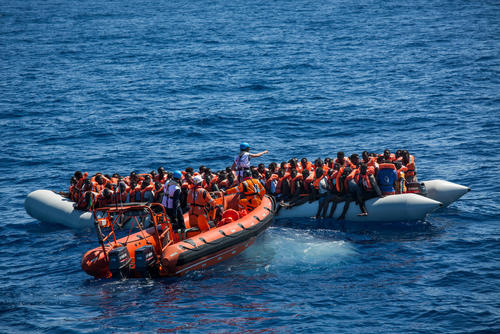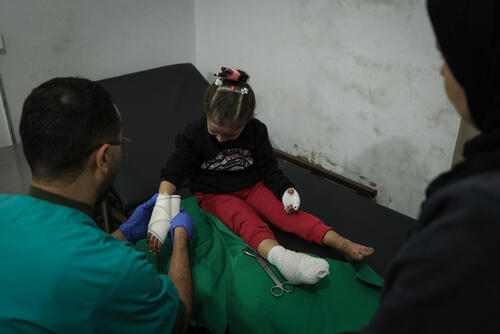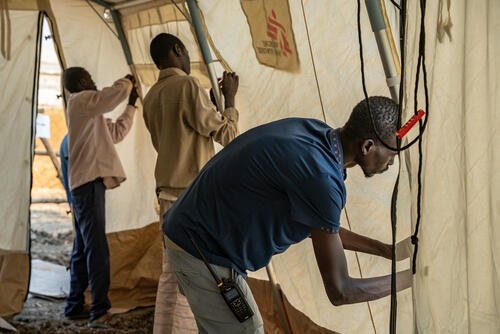Brussels. Five years after the launch of the first investigations against humanitarian organisations conducting search and rescue in the Mediterranean, MSF and four MSF colleagues – together with other organisations - have been summoned to a preliminary hearing on 21 May in Trapani, Italy. This is an expected step as the judge will have to evaluate the extensive documentation submitted by the Prosecutor of Trapani and decide on the committal or not to trial.
“We are going to this preliminary hearing absolutely confident about everything we have done, and we do in the Mediterranean Sea” declared Bertrand Draguez, President of MSF Belgium and legal representative for MSF. “We always worked with the sole objective of saving lives, in full transparency and in compliance with international regulations, and we are sure the proceeding will confirm this. The period of criminalization of humanitarian aid has been already so harmful and we only hope it will end very soon.”
“Our teams work in more than 70 countries all over the world to bring medical-humanitarian assistance and alleviate the suffering of the most vulnerable people, ” continued Draguez. “This is what we also do in the Mediterranean, the deadliest border in the world, covering the gap left by European and Italian authorities. As MSF, we take full responsibility of all these actions and we stand firmly by our colleagues who were simply doing their job and saving hundreds of lives.”
Our teams work in more than 70 countries all over the world to bring medical-humanitarian assistance and alleviate the suffering of the most vulnerable people. This is what we also do in the Mediterranean, the deadliest border in the world, covering the gap left by European and Italian authoritiesBertrand Draguez, President of MSF Belgium and legal representative for MSF
Since 2017, MSF teams have been under investigation in Trapani for three operations conducted on board one of our boats, Prudence. In March 2021, the Prosecutor closed the investigation against MSF and four MSF colleagues who were coordinating our SAR project at the time. The investigations include other NGOs and civil society organisations such as Save the Children and Jugend Rettet, with the accusation of facilitating illegal migration.
MSF teams are also involved in another trial in Catania, with the infamous accusation of illicit waste trafficking for the disposal of waste in a few disembarkations. Nevertheless, since then, MSF continued every year to save lives with different vessels, today the Geo Barents, bringing assistance to more than 82,000 people in distress in coordination with relevant authorities.
“During the last years, legal accusations and administrative obstacles against humanitarian actors at sea have led to zero condemnations up to date but have achieved to reduce the SAR capacity in the Mediterranean and to divert from the real issue: people continue to die at European borders and European migration policies are to blame,” continues Draguez.
“These accusations will not distract us: we will continue to rescue people in need as we currently do onboard the Geo Barents, which saved 470 lives just last week. We hope that all these accusations will be dismissed and that we and our humanitarian workers will be able to focus exclusively on this desperately needed work.”
MSF went to sea in 2015 to fill the void left by the closure of Mare nostrum and respond to an unacceptable number of deaths in the central Mediterranean. Since then, we have never stopped calling for legal and safe ways for people fleeing to Europe and a search and rescue system agreed at European level. With eight different humanitarian vessels, MSF helped to rescue over 82,000 lives at sea, under maritime law and in coordination with the Italian coast guard and other relevant authorities, and to provide medical and mental health assistance at disembarkations and other projects, supporting the Italian health system.






